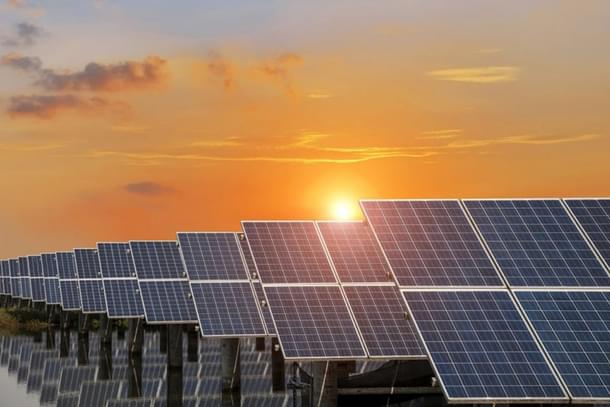News Brief
China’s Share In India’s Solar Cell Imports Plunges From 90 Per Cent To 56 Per Cent Amid Domestic Production Push
Vansh Gupta
Mar 18, 2025, 05:33 PM | Updated 05:28 PM IST
Save & read from anywhere!
Bookmark stories for easy access on any device or the Swarajya app.


India's solar sector is witnessing a significant shift, with imports of solar cells and modules declining by 20 per cent and 57 per cent, respectively, in the first eight months of FY2024-25, according to estimates from Rubix, an analytics services provider and reported by The Economic Times.
The drop is largely attributed to government policy support, domestic capacity expansions, and a push for self-reliance in the renewable energy sector.
One of the most notable trends in the solar sector is the sharp decline in imports from China. In FY2023-24, China accounted for over 90 per cent of India’s solar cell imports, but this has now fallen to 56 per cent.
Similarly, Chinese solar module imports have dropped to 65 per cent. This reduction highlights India’s increasing emphasis on local manufacturing and diversifying supply sources.
Leading Indian solar manufacturers, including TP Solar (Tata Power’s solar arm), Reliance Industries, Waaree Energies, Vikram Solar, Gautam Solar, AdSolar, and Rene, are expanding production in the gigawatt range, Rubix reported.
The Production-Linked Incentive (PLI) scheme has further upscaled local manufacturing, making India a stronger player in the global solar supply chain.
Despite these efforts, India remains dependent on imports for photovoltaic (PV) cells and wafers, as the country lacks significant domestic cell manufacturing capacity and wafer production facilities.
Rubix highlighted that in FY2023-24, India's solar module exports were nearly 35 times the value of solar cell exports.
Waaree Energies, Adani Solar, and Vikram Solar have led this export growth, with each company exporting over half of its annual production in FY2024.
Also, India’s solar push aligns with its "Panchamrit" pledge at COP26, where it committed to attaining net-zero emissions by 2070 by generating 50 per cent of energy from renewables.
To accelerate rooftop solar adoption, the government launched PM Surya Ghar: Muft Bijli Yojana (PMSGMBY)—the world’s largest domestic rooftop solar initiative in February 2024.
As of 10 March 2025, the scheme has successfully powered 10 lakh homes with solar energy.
Under this scheme, households receive subsidies ranging from Rs 30,000 to Rs 78,000, depending on electricity consumption and system capacity. The initiative also promotes the use of "Made in India" solar components, reinforcing the country’s commitment to domestic solar manufacturing and energy independence.
Vansh Gupta is an Editorial Associate at Swarajya.





